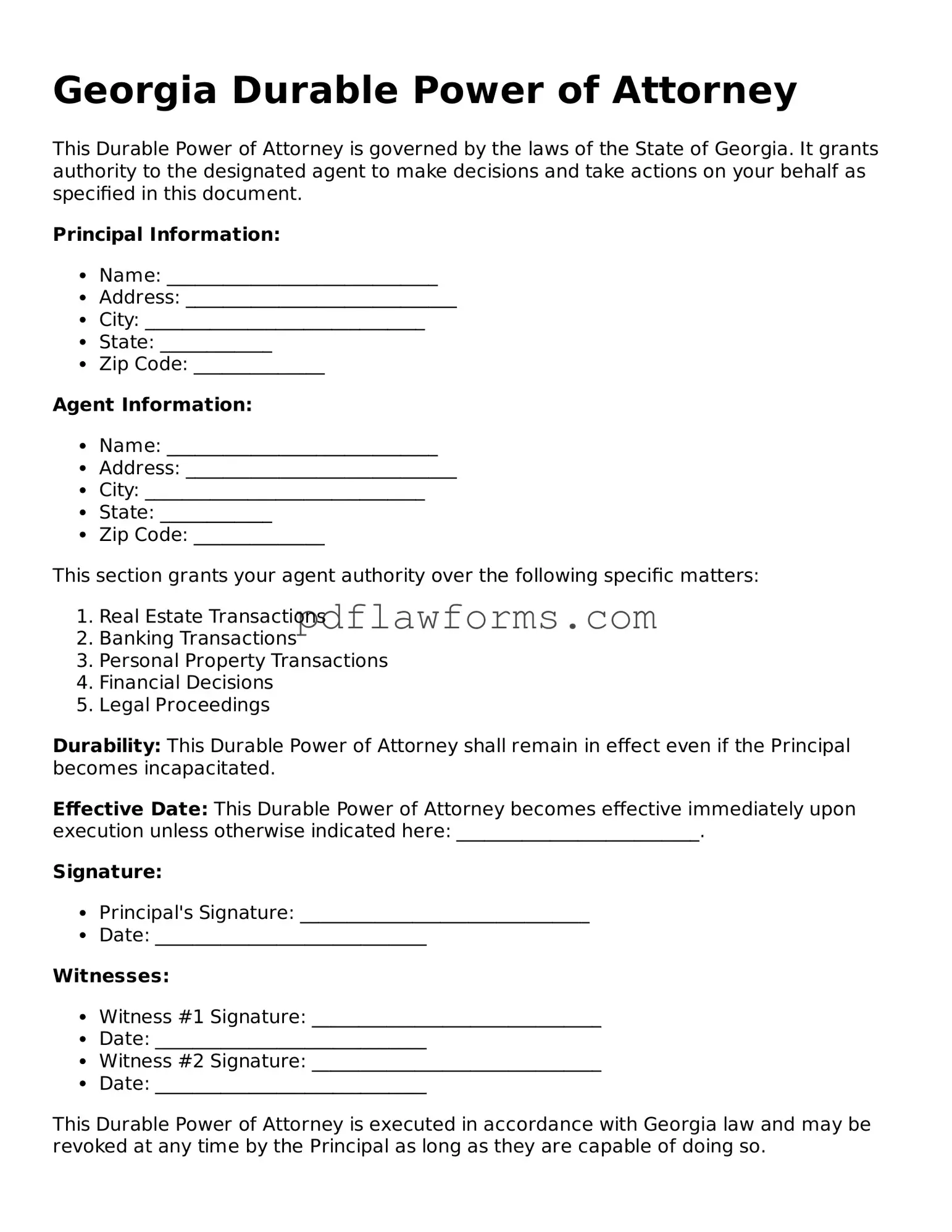Durable Power of Attorney Form for the State of Georgia
A Georgia Durable Power of Attorney form is a legal document that allows an individual to appoint someone else to make decisions on their behalf, even if they become incapacitated. This form ensures that the appointed person can manage financial and legal matters according to the individual's wishes. To take control of your future, consider filling out the form by clicking the button below.
Make My Document Online

Durable Power of Attorney Form for the State of Georgia
Make My Document Online
You’re halfway through — finish the form
Edit and complete Durable Power of Attorney online, then download your file.
Make My Document Online
or
⇩ Durable Power of Attorney PDF
